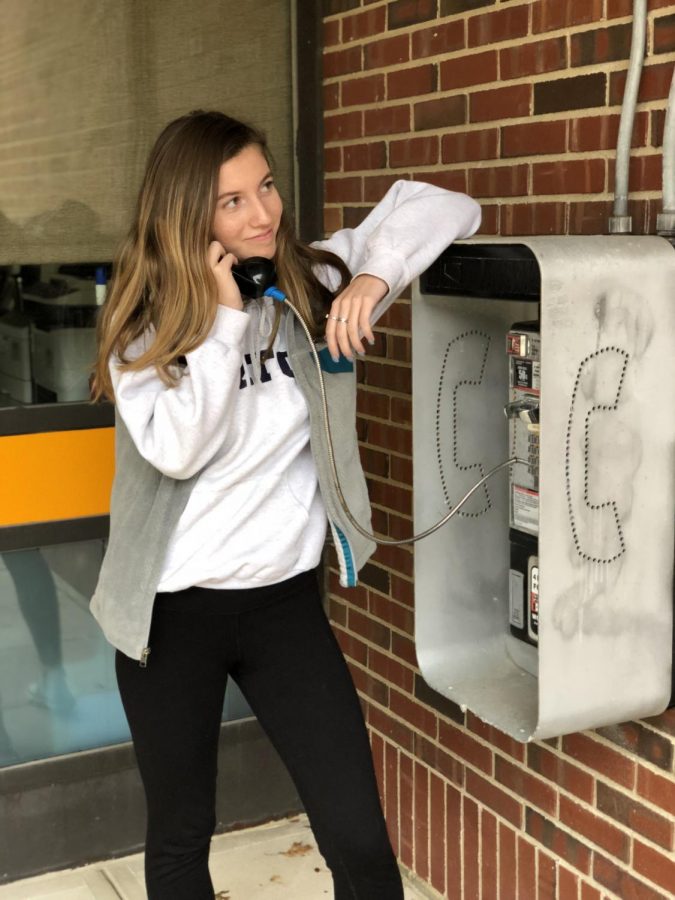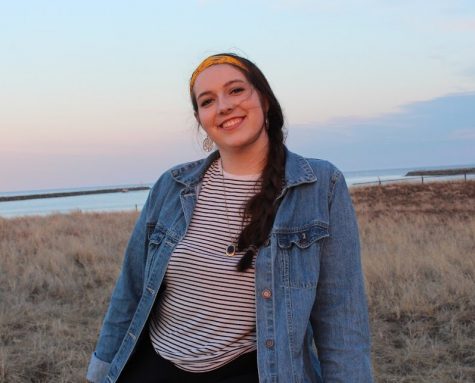A Call From the Past
A Relic Left at Triton
Senior Mackenna Faucher making a call on the Triton Payphone.
October 31, 2018
Payphones were very popular during the 1990s with over 2 million across America but over the years there has been a decline in payphones. Now, there are only about 100,000 left in the country. One of those 100,000 is outside Triton High School outside, next to the school bank.
The boxes that once held payphones that spread across the walls of every train station or street corner are now the empty exoskeleton of something from the past. Although some payphones may still be around, the number of empty phone booths outweighs the actual number there are. In 2011, Verizon sold their payphones to Pacific Telemanagement Services because they were no longer making enough money from the payphones. Pacific Telemanagement services is the company that owns the payphone at Triton.
Due to cell phone usage the need for payphones has lessened, leading to the extreme decline in payphones and payphone companies.
“Payphones were great back in the time when no one could call their friend right away. But now they are not used often by anyone. The only time I would think to use one is if it was a dire situation, like your phone battery is dead or it’s late and you don’t have your phone,” said Kyla Prussman.
One place, where payphones are still needed and make quite a big profit, is national parks. In most national parks there is no cell service, which cause people not to be able to call one another. But at the campground sites and bathrooms, payphones are there for anyone’s convenience.
But Lydia Crowley believes that in 10 years, “…payphones will be gone. We don’t need them anymore. They will be implanted in our ears or something.”
At Triton it is unknown why we have a payphone. Mrs. Kimberly Wright, the School Secretary, said “[The payphone] has been here as long as I have. I believe we have it because we are a public building.”
Public buildings are not required to have a payphone necessarily but it is useful and can help in an emergency situation or if someone without a phone wants to make a call.
Senior Mackenna Faucher called her father on the payphone. He didn’t pick up, but not even 30 seconds later, he called her asking her if she was all right. “He was scared. He thought something was wrong because I called him on the payphone.”
It is interesting how in the 1990s it was so normal to get a call from a payphone, but now to some people it indicates that something is wrong or decline the call because the number isn’t known.
In the future it is unclear if payphones will be extinct, but for now they are a rare link we have to the past.




